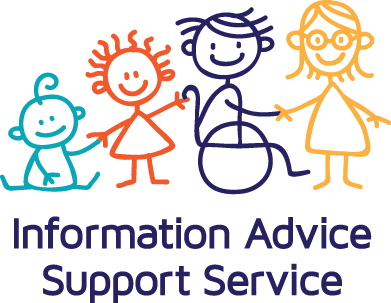SEN Exclusion
SEN Exclusion
The Department of Education sets out the Statutory guidance for those with legal responsibilities in relation to exclusions and applies to children and young people attending the following education settings:
- Maintained schools (state school)
- Academies (including Free schools but not 16-19 Academies)
- Pupil referral Units (PRU’s)
- School Sixth forms
Other types of education settings include: sixth form colleges, FE colleges, independent schools or colleges. These types of education settings will have their own behaviour and exclusion policies.
Who can exclude?
Only the head teacher has the power to exclude your child or young person (or the teacher in charge of a pupil referral unit or the principle of an academy).
Types of exclusions:
There are only two types of exclusions from an education setting that are lawful:
- Suspension (or fixed period) – this means the pupil is not allowed in school for a set number of days (up to a maximum of 45 school days in a single academic year) for disciplinary reasons.
(A lunch time exclusion is recorded as a half day fixed period exclusion)
- Permanent – this means the child is no longer allowed to attend the school and their name is removed from the school roll.
A decision to exclude a pupil permanently should only be taken:
- In response to a serious or persistent breach of the school’s behaviour policy; and
- Where allowing the pupil to remain in school would seriously harm the education or welfare of the pupil or others in the school.
You can look at our factsheet on SEN Exclusions (link) to find out more information about the process and the legal steps that schools should follow.
If you believe that your child has been excluded because of their disability, then you may be able to make a claim under the Equality Act 2010 to the First tier (SEND) Tribunal.
Children with Special Educational Needs (SEN):
Head teachers should, where possible, avoid permanently excluding any pupil with an Education Health Care (EHC) Plan or a ‘looked after’ child.
Schools should engage proactively with you in supporting your child’s behaviour.
Where a school has concerns about your child’s behaviour, or they may be at risk of exclusion, it should, in partnership with others (including the Local Authority), consider what additional support or alternative placement may be required. This should involve assessing the suitability of support for your child’s SEN.
If your child has an EHC Plan, schools should consider requesting an early Annual Review or interim / early review of the EHC Plan. Please refer to our Annual Reviews booklet (link) for more information.
Useful Information:
Click here to read: School Suspensions and permanent exclusions
Click here to read: School Exclusion: What is legal?
Useful organisations:
To find out more about what the law and guidance on Exclusions click on the headings of the organisations below:
IPSEA
IPSEA offers free and independent legally based information, advice and support to help get the right education for children and young people with all kinds of special educational needs and disabilities (SEND).
Click here for IPSEA’s advice on exclusion from schools and advice on what is disability discrimination
Child Law Advice
Free specialist legal advice and information on child, family and education law for parents, carers and young people in England from Coram Children’s Legal Centre
The Advisory Centre for Education provides independent advice and information on state education in England
ACE Adviceline – 0300 0115 142
Communities Empowerment Network
Communities Empowerment Network (CEN) aims to support, advise, represent and reintegrate pupils excluded from school back into full-time, mainstream education and to support parents to play an empowered role for the successful education and progress of their children.
Telephone: 020 7733 0297
Email address: info@cenlive.org
Equality Advisory and Support Service (EASS)
Equality Advisory and support service helpline advises and assists individuals on issues relating to equality and human rights.
Adviceline: 0808 800 0082
This charity provides FREE legal advice to individuals or not-for-profit organisations that are NOT ELIGIBLE for LEGAL AID and are on a low income. LawWorks provide ‘pro bono’ legal advice to all those that qualify.
SEN Advocacy services (Fee only advice)
In some cases, advocacy services can be a cost-effective way to obtain advice, support and guidance during your SEND tribunal case. The following advocacy services are very experienced in SEND law and cases:
